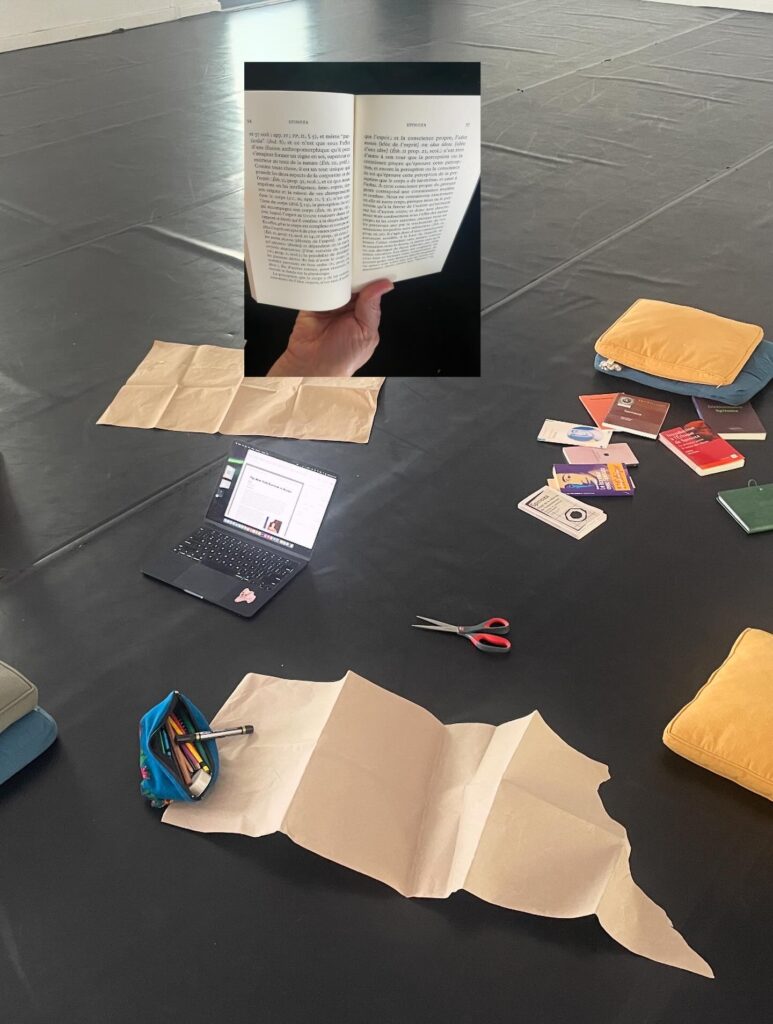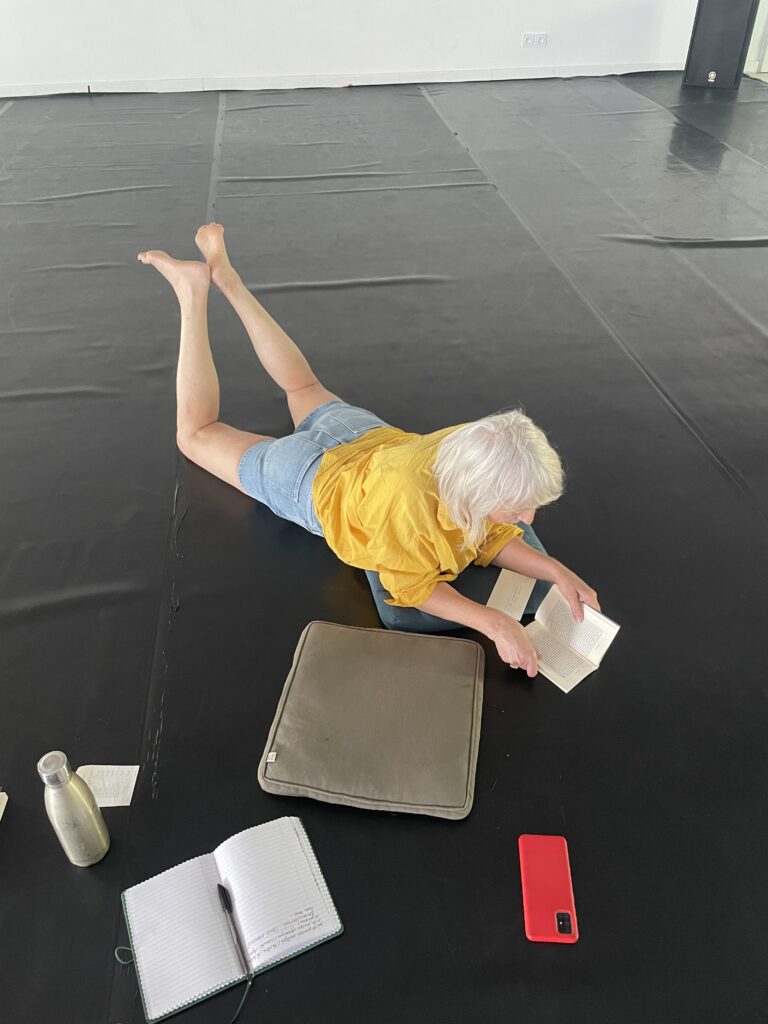
This is the second part of the project The Posthuman Knowledge Platform, co-organized, conceived, and dreamed up with researcher Alix de Morant.
In this philo-choreographic research, we question and observe:
How do we cultivate joy in these troubled times? What are our artistic strategies in the face of such a dark period? And how do we put them into practice in today’s shifting reality (ies)?
In 2025/26, together with a group of international artists, we will read Spinoza’s Ethics, in order to discuss, exchange, and transform JOY into a collective practice.
Next research residency: June 16–20, at Art Fabrik, Combauillax.
Will be present with us the Rolfer practitioner Kai Simon Stoeger and choreographer Lisanne Goodhue.
~~ Statement of Intent / Cultivating JOY ~~
In Posthuman Feminism, Rosi Braidotti had already emphasized the importance of putting theory into practice, urging her readers to move from reading to action. Through her thinking, she invited us to move beyond the mere acquisition of knowledge—to share it, to disseminate it widely among the public, and to initiate a radical transformation of our ways of living and thinking.
This invitation to move from research to creation was the original motivation for gathering artists, researchers, and dramaturgs in 2023.
During the study day on November 7, as a concluding gesture, Rosi Braidotti proposed re-reading Spinoza’s Ethics to shed light on this time of uncertainty and upheaval in global systems.
We took up the idea as an opportunity to question what moves us, and what strengthens us in the face of today’s societal challenges.
Written between 1661 and 1675 and published posthumously, Spinoza’s work is a cornerstone of modern philosophy and a lifelong ethical project that continues to resonate. Some have viewed it as a remedy for the ills of the contemporary world (Spinoza, Anti-Stress in 99 Pills, 2012) or even as a path out of capitalism (Capitalism, Desire and Servitude. Marx and Spinoza, 2010). But the real issue lies elsewhere: the goal of Ethics is to produce true knowledge.
“I do not claim that my philosophy is the best,” Spinoza once said, “I only know that it is true.”
Revisiting this text—understanding it, analyzing it, contextualizing and problematizing it through various interpretations and through the lens of artistic and choreographic research—will allow us to question false truths, to gain clarity, and to resist obscurantism.
In the face of the crises shaking the planet, we aim to collectively regain hope, to celebrate the life within and around us. The preservation of life and the cultivation of joy are among Spinoza’s most essential ideas.
Alix de Morant and Laura Kirshenbaum

